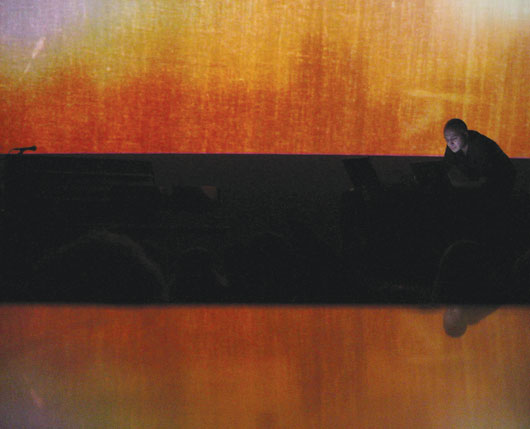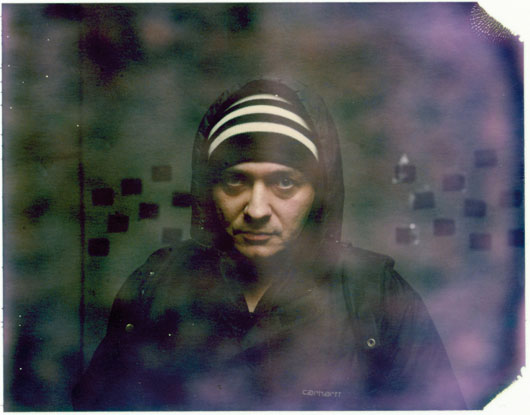Strange Magic: Klimek Expounds on the Themes that Influenced his Latest Album.
Polish-born, Berlin-based sound artist Sebastian Meissner is in the midst of a hyper-creative multiple-personality crisis. […]

Strange Magic: Klimek Expounds on the Themes that Influenced his Latest Album.
Polish-born, Berlin-based sound artist Sebastian Meissner is in the midst of a hyper-creative multiple-personality crisis. […]

Polish-born, Berlin-based sound artist Sebastian Meissner is in the midst of a hyper-creative multiple-personality crisis. Only rarely has he been himself for the past decade, choosing names like aUTOkoNTRasT, Bizz Circuits, Random Inc, Random Industries, Autopoieses (with Ekkehard Ehlers) and, most notably, Klimek for his various noise and ambient experiments on Mille Plateaux, Kompakt, and Anticipate Recordings.
His newest release as Klimek, Movies is Magic (Anticipate), might be the one to bring all the voices and pictures in his head together. Its 10 tracks flow into one gorgeous, disturbing, villainous, and cinematic sound of blissful confusion. Highlights are many: the shimmery “Exploding Unbearable Desires,” the sustained tension and release of “Abyss of Anxiety (Unfolding the Magic),” and the self-immolation and blind love of “Greed, Mutation, Betrayal” are but three, all designed to make your heart stop and head spin.
We found Meissner at home, just back from a festival in Krakow, working all night and early morning on additional tracks for the vinyl version of Movies is Magic.
XLR8R: What are your your first memories of associating what you saw on the movie screen with sound??
Sebastian Meissner: I think it was seeing Kubrick’s 2001: A Space Odyssey. Also the beauty and mysticism of Popol Vuh’s compositions for Werner Herzog movies, and the combination of pop and classical music themes in An American Werewolf in London.
Your pieces in Kompakt’s Pop Ambient series are like mini film soundtracks. Was this intentional?
?Immediately after [Kompakt co-founder] Wolfgang Voigt heard my first two tracks—”Milk” and “Honey”—he told me about his own music’s associations to road movies [like] Paris, Texas and Dead Man. I thought I could adapt the idea of doing music for imaginary movies. The references to soundtracks within my work kept on multiplying, and I felt the urge to carry this topic to extremes… This album is the ultimate statement I can make about the connection of sound and cinema, and a good point to start working on something new.

??Slavoj Žižek, Brian Wilson, and Van Dyke Parks are a direct influence on Movies is Magic. How does philosophy and pop culture combine to inspire your productions?
?This connection is the very core of what this album is all about. On the one hand, it’s how passionately [Slovenian philosopher] Žižek isolates the psychological aspects in movies [“music is always potentially a threat,” he says in the documentary The Pervert’s Guide to Cinema]. On the other side, Van Dyke Parks and Brian Wilson’s track “Movies is Magic” points out the ambivalent aspect of cinema. The dark side of Hollywood… David Lynch’s Inland Empire, James Ellroy—these all influence my work.
??So, movies is magic, and real life is tragic??
In the album there is a picture of a cinema inside of an Italian mental asylum. What better way to emphasize the meaning of this phrase when you connect the image to the title song by Brian Wilson, somebody who spent a significant part of his life dealing with his inner demons?
Your track titles foreshadow provocative, edgy listening but the overall effect is calming, like recalling a vivid dream. Do you see your work this way??
For an instrumental sound artist, track titles are a way to communicate explicitly with your audience. They should draw attention to the fact that there is something much more inside those tracks. But the reviews of the album I read so far weren’t so uniform about the “calming” aspect!

